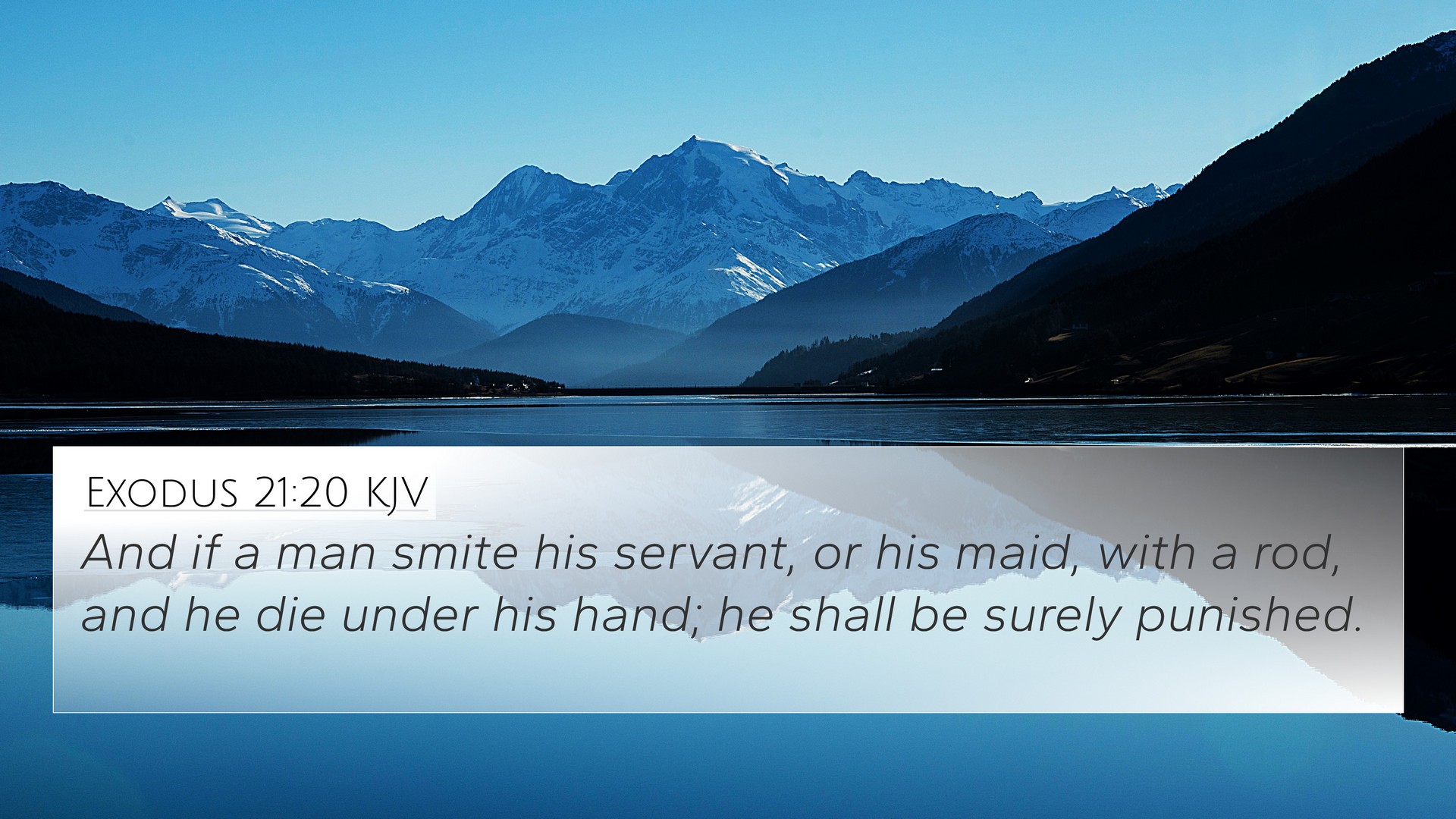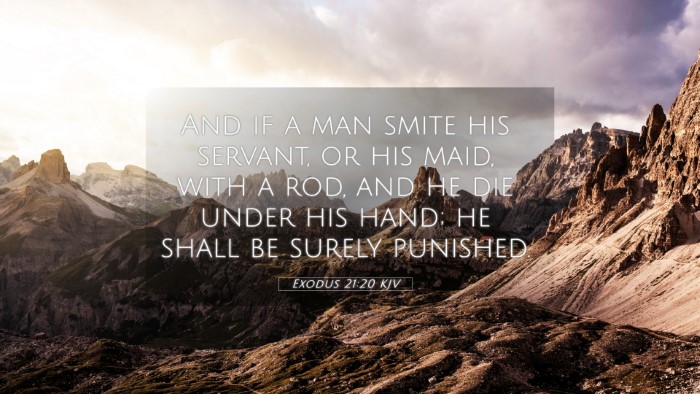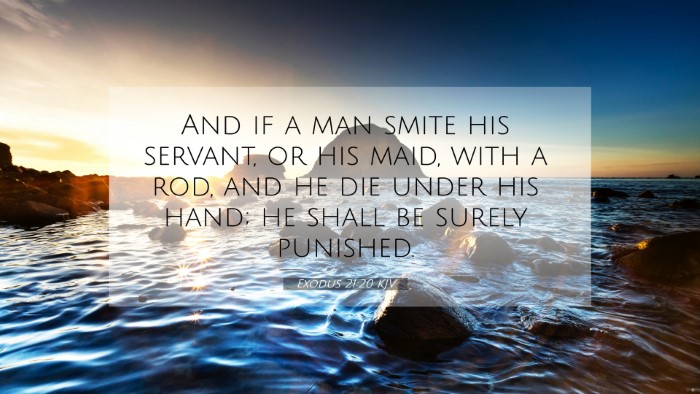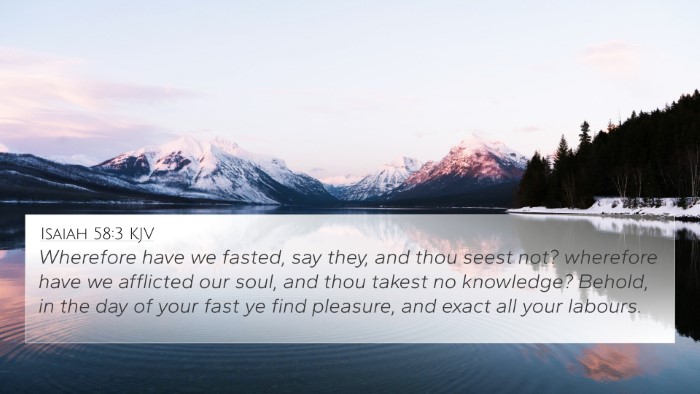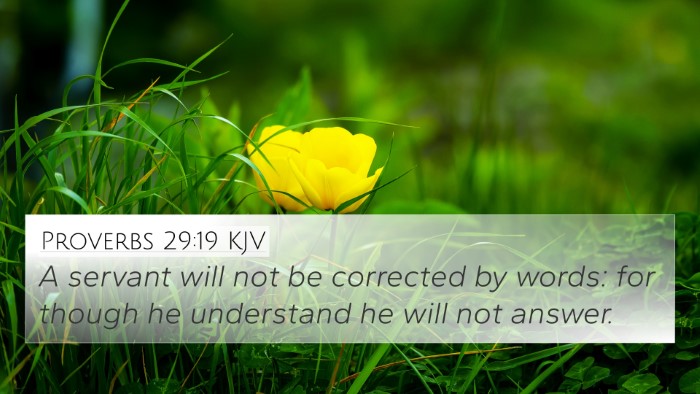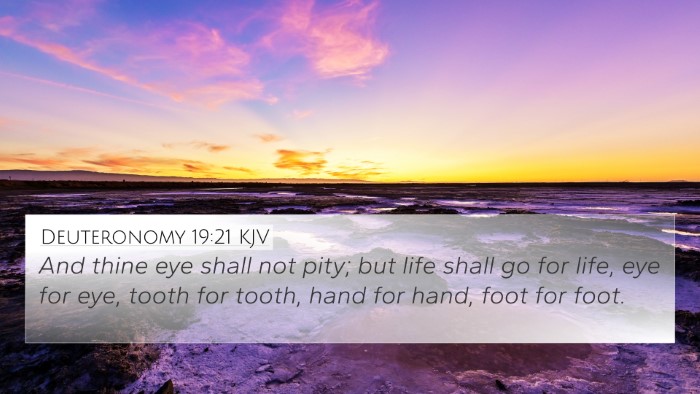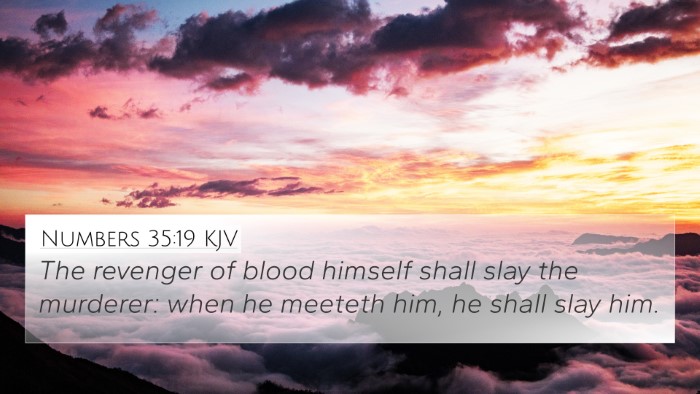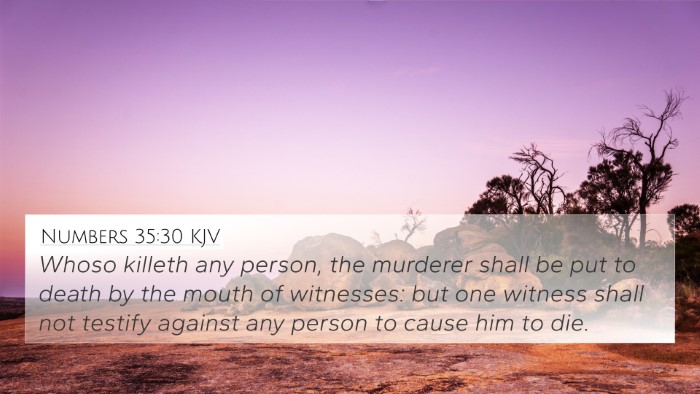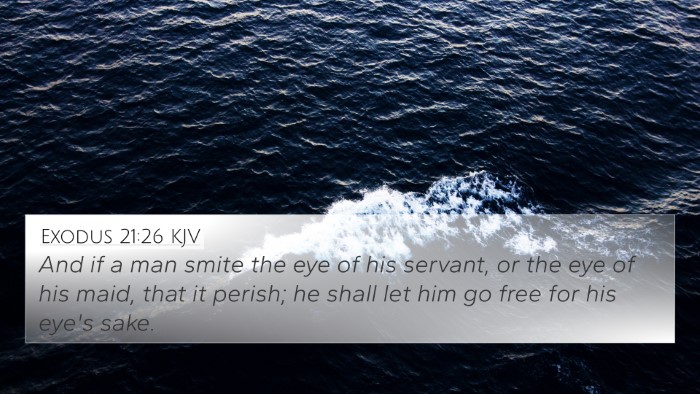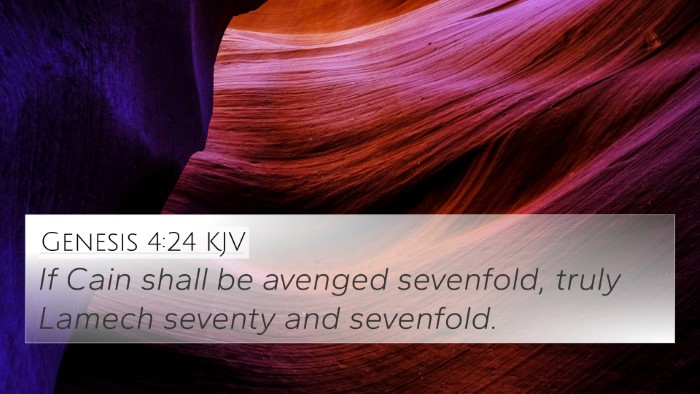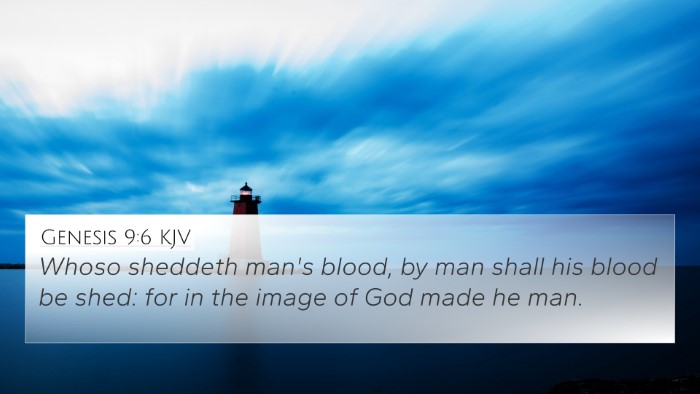Understanding Exodus 21:20
Exodus 21:20 states: "And if a man smite his servant, or his maid, with a rod, and he die under his hand; he shall be surely punished." This verse addresses the treatment of servants within the context of ancient Israelite law. It provides insight into the moral and legal standards expected in the society of that time.
Summary of Commentary Insights
The interpretations of this verse from various public domain commentaries highlight several key themes:
- Matthew Henry emphasizes the necessity of humane treatment of servants, asserting that the command reflects God's concern for justice and mercy within social structures.
- Albert Barnes discusses the implications of the penalty described, noting that it serves to deter abusive behavior and underscores the sanctity of life, even in regard to servants.
- Adam Clarke points out that the rod symbolizes discipline, yet the act of killing is viewed as a heinous crime, reflecting the value placed on human life regardless of social standing.
Thematic Connections
This verse can be cross-referenced with several other biblical texts that contribute to a deeper understanding of its themes. Here are some relevant connections:
- Matthew 7:12 - "Therefore all things whatsoever ye would that men should do to you, do ye even so to them." This verse speaks to the ethical principle of treating others as one wishes to be treated, reinforcing the humane treatment of servants.
- 1 Peter 2:18 - "Servants, be subject to your masters with all fear; not only to the good and gentle, but also to the froward." This reflects on the relationship between masters and servants, emphasizing respect and duty.
- Colossians 4:1 - "Masters, give unto your servants that which is just and equal; knowing that ye also have a Master in heaven." This verse reminds those in authority to act justly, linking to the punishment outlined in Exodus 21:20.
- Proverbs 29:21 - "He that delicately bringeth up his servant from a child shall have him become his son at the length." This reflects the potential for familial relationships within servitude when conducted with kindness.
- Deuteronomy 24:7 - "If a man be found stealing any of his brethren of the children of Israel, and maketh merchandise of him, or selleth him; then that thief shall die." This highlights the seriousness of unjust treatment regarding the rights of individuals.
- James 5:4 - "Behold, the hire of the laborers who have reaped down your fields, which is of you kept back by fraud, crieth: and the cries of them which have reaped are entered into the ears of the Lord of Sabaoth." This reflects the Lord's concern for the rights of workers and the justice due to them.
- Leviticus 19:13 - "Thou shalt not defraud thy neighbor, neither rob him: the wages of him that is hired shall not abide with thee all night until the morning." It emphasizes fairness in labor and relations.
Interpretative Framework
To understand Exodus 21:20 fully, one must consider the historical and social context of ancient Israel. The laws provided in the Torah served multiple purposes:
- Regulatory Framework: They aimed at regulating the interactions between classes and ensuring justice.
- Moral Instruction: The laws provided moral guidance, emphasizing the importance of protecting the vulnerable.
- Divine Justice: They reflect God’s desire for fairness and justice within societal structures.
Tools for Bible Cross-Referencing
To aid in the study of biblical cross-references, several tools and resources can be utilized:
- Bible Concordance: Look up specific keywords to find relevant verses across scriptures.
- Bible Cross-Reference Guide: These guides provide lists of verses connected thematically or contextually.
- Cross-Reference Bible Study: Engage in methods that promote comparative analysis of related scriptures.
Conclusion
Exodus 21:20 serves as a powerful reminder of the ethical treatment of servants and highlights the serious consequences of abuse. By examining this verse in conjunction with others, one can gain a broader understanding of biblical principles regarding justice, compassion, and the value of human life. The interconnectedness of scripture encourages believers to reflect on their actions and the attitudes they adopt towards others.
Further Study
For those interested in deeper themes and connections, it is beneficial to explore biblical narratives that discuss the treatment of individuals within a community. Engaging with these themes through comparative Bible verse analysis can uncover the rich tapestry of connections that scripture provides, fostering a more comprehensive understanding of Christian teachings.
